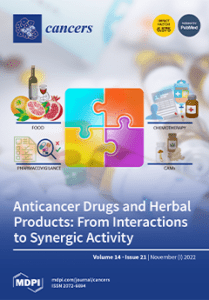
Although immune checkpoint inhibitors (ICIs) are becoming the standard of care in some types of cancers, few studies have looked at the safety and efficacy of ICIs for treating FLC. This multicenter, retrospective analysis aimed to determine if treatment with ICIs could be helpful for FLC patients.
Patient data included in this study was identified using the Johns Hopkins Liver Cancer Database, the UT Southwestern Medical Center Liver Cancer Database, and the Fibrolamellar Registry. Included patients were those diagnosed with advanced stage FLC and treated with anti-PD-1 or anti-PDL1 therapy, alone or in combination with other drugs.
Here’s what they found:
- The team identified 19 patients who received ICIs
- Partial clinical responses were observed in 3/19 patients (15.8%), who received ICIs in combination with other drugs
- In the subset of patients who received ICIs alone, 2/15 patients (13.3%) had partial clinical responses
- Immune related side events were observed in 4/19 (21.1%) patients.
In summary, this study found that immune checkpoint inhibitors have some limited benefit in treating FLC. The team hypothesized that FLC’s low tumor mutational burden (TMB) – a measure of the number of mutations in the cancer – may explain some of that limited benefit. Cancers with higher TMBs generally achieve more benefit from ICI treatment.
Further investigation is also needed to understand the impact of the tumor immune microenvironment (TME) in FLC and its influence on responders and non-responders to immunotherapy treatments. The TME is the ecosystem that surrounds a tumor inside the body. It includes immune cells, the extracellular matrix, blood vessels and other cells.
The full text of the publication can be accessed here.
Note: This effort was partially funded by a grant from FCF. It also is an example of retrospective research that can be conducted with patient-contributed data. Thank you to all the patients and families who participated in the Fibrolamellar Registry!
